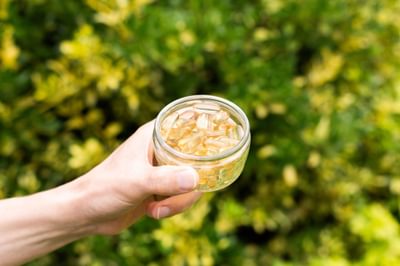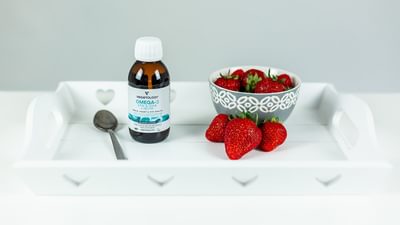
You might not even know it but docosahexaenoic acid, also known as DHA, is crucial for our body and without it we could have huge health problems.
You might not even know it but docosahexaenoic acid, also known as DHA, is crucial for our body and without it we could have huge health problems.
DHA, or docosahexaenoic acid, is a type of Omega-3 fatty acid. It is an essential fatty acid, meaning that the human body cannot produce it on its own, and it must be obtained through dietary sources. DHA is a crucial component of cell membranes, particularly in the brain and eyes.
DHA is especially important during pregnancy and breastfeeding. It is a key component of the developing fetal brain and eyes, and it continues to be important throughout the rest of our lives too by helping to maintain normal blood pressure and blood levels of triglycerides, which are a type of fat in the blood.
DHA is just one of the Omega fatty acids we need, we also need to have ALA (alpha-linolenic acid) and EPA (eicosapentaenoic acid) too.
How much DHA should you have per day?
Currently, the UK National Health Service (NHS) advises adults to consume at least 250mg of combined EPA and DHA per day. This recommendation can be achieved by consuming two portions of fish per week, including one oily fish portion.
For children, the recommendation is dependent on age:
For those following a vegetarian or vegan diet, there are alternative ways to get enough Omega-3 into your diet, and this includes various foods as well as vegan Omega-3 supplements.
Taking more than 3 g daily of DHA and other omega-3 fatty acids is considered to be possibly unsafe, and comes with the risk that it could slow blood clotting and potentially increase the chance of bleeding.

What foods contain DHA?
We can make sure we’re getting enough DHA through our diet and this includes great sources of this essential fatty acid, which include:
DHA supplements are available in various forms, including fish oil capsules and algae oil capsules. These supplements are commonly used to ensure the body is getting enough omega-3 fatty acids, especially for those who may not consume enough fatty fish in their diet.
What are the signs you’re not getting enough DHA?
Signs that you’re not getting enough DHA, and therefore have an Omega-3 deficiency include:
These symptoms alone could also be an indication of another health concern so if you are having any of these or are concerned about your health, then speak to your GP or a healthcare professional for advice and they can advise whether an Omega-3 supplement is needed or not.

Is it better to take EPA or DHA?
Both EPA and DHA are essential Omega-3 fatty acids, and both play important roles in supporting various aspects of health. Neither one is more important than the other, and you need both within your diet to get the full benefits of taking Omega-3.
EPA is known for its powerful antioxidant properties, as well as its promotion of cardiovascular and cognitive health. Whereas DHA is crucial for brain and eye development from when we’re a foetus and then throughout life.
Your GP or a healthcare professional will be able to recommend whether or not you take supplements of both, or just one in particular. However most Omega-3 supplements include both together.
